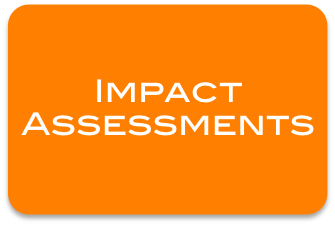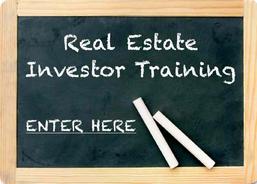RealEstateHomeSolutions.com
Home Issues - Strategies - Solutions
OUR BLOG
Strategies That Will Help You
Sell Your House Quickly
By: Sallie Soukup
If you are considering putting your house on the market, there are certainly a number of things you should do first so as to get it ready for viewing. Besides current financial hardships, the primary reason why homes take a long time to sell is because the potential buyers cannot see themselves residing in that place. There are a lot of trade secrets that can improve a home's visual appeal, yet there are also many other things that the seller can do to get their home sold fast. Here is a short overview of what sellers have to be doing to sell their property in today's competitive market.
The most important thing to do is distance yourself from the feelings you put into making this house your home. Although it may be difficult to do that, selling your home for an excellent price is the most crucial consideration. To be able to take yourself out of the home, you must make it anonymous to buyers. This means giving up your forest green paint and wedding pictures for natural tones and less personal art. Next you must (we reiterate, must) get rid of all clutter and keep the house clean. Now, this is really easier said than done, since many people still reside in the home while trying to sell it. When cleaning up and de-cluttering, it is very important to not neglect the yard areas and garages as well. No matter what you do, if it is tucking items underneath a bed, getting rid of broken-down trees, or packing early, just make sure that your home is attractive. After all, potential customers are judging each house in accordance with the others.
House improvements to the most crucial areas in the home, such as the bathrooms and the kitchen, are guaranteed big money makers. If it's not in your budget to do these improvements, you may wish to consider leaving some allowances for selling price negotiation involving these spaces in your contract. Beyond the physical appearances, key issues to the home, like a leaking roof or an awful furnace, have to be repaired before selling. Again, if they cannot be, then you'll have to divulge these issues right away and leave room for them on the negotiation table.
Listing your property with the right agent is also something that directly affects how quickly you will sell your house. Trustworthy real estate agencies like Remax and Keller Williams have broad marketing programs where they publish listings of your home. These listings create leads on your property. It's your realtor's job to market your house honestly and to the right demographic. For example, if you have a small condominium for sale in Louisville, Colorado, it could be smart to try to market your property toward new families or working professionals. Your realtor should be ready to suggest things like converting the second bedroom as a nursery or an office/guestroom.
Three Secret Strategies For Selling Your Home
Selling a home in today's economic times can be tough. Most homes sit on the market for months and many times up to a year. Home owners are told by Real Estate agent that they may need to make tens of thousands of dollars of repairs. Heating units may need to be repaired, carpets, and most always a new paint job. You want to make money not spend it all just to have your home sit on the market. That's money wasted! You may think that you are inventing in your home when you make those repairs but you could just be dumping money down the drain. You may think that the new fresh coat of white paint will satisfy any new owner. Only to find out that the new owner wants blue paint.
So the first point is its best to sell "as is" to save money and time. It's best to sell it as is to avoid spending money you may need to move or buy another house. Check locally for an investor that can help you with a home evaluation.
You also want to have a definite time frame that you want to sell you house in. You will need to give an investor or buyer enough time to get financing.
Point number two is set a sell by date. This will give your buyer a good idea of how much time they will need to secure money and make repairs.
Point three is be prepared to sell for less than what you think your house may be worth. Remember a buyer may be working with you on your time constraints so you may have to give some on the price. Investors are looking for sellers that want to sell fast and that means now. There are tons of sellers that are thinking about selling in three to six months but there are also tons of sellers that want to sell now.
Figure out where you are so you will have an understanding of how an investor or buyer may respond to you. Just being prepared to take less than what your house may be worth will put you at the top of the list and make your home more attractive to a buyer and there for much easier to sell.
The American Housing Bubble
Timeline and Causes
By: Dave Gildner
The USA housing bubble wasn't something that popped out of a box one day. It was building up for the better part of the decade, but it still came as a shock. The subprime mortgage crisis and the real estate market crash were quickly followed by a severe credit crunch. With loans drying up, consumers stopped buying and the vicious cycle spiraled into the Great Recession of 2008-09. From 2007 to 2010, tens of millions of people lost either their homes or jobs or both.
The roots of this crisis go back to 2001, to the dot com crash and 9/11. This deadly combination knocked the stuffing out of the economy and the only thing people had left to maintain their lifestyles was home equity. Congress deregulated the banks, and the Federal Reserve kept interest rates low, thus allowing mortgage lenders to shovel money out the front door to all comers.
The result was that speculators started buying homes just to make a quick buck. Even for ordinary homeowners, it was easy to take out equity loans and second mortgages so that they could enjoy the fruits of the housing boom. According to BLS (Bureau of Labor Statistics) data, non-farm payroll employment for residential construction jumped 29.1% from 2001-06. Employment among loan brokers jumped nearly 120% during the same period, and the real estate credit industry grew by 52%.
Speculation fueled by irrational exuberance is what the FED is there for. They could easily have kept it under control by increasing interest rates. Instead, they did nothing until it was too late. Wall St. Was knee deep in derivative products created from these subprime mortgages. The lenders had created mortgage packages graded by the credit ratings agencies and then handed them off to investors.
Private equity funds began using it to setup massive leveraged deals where companies were wildly overvalued and the only security the banks had was these worthless mortgage papers. Everybody was in on the systemic fraud and share values and home prices kept climbing. When the bubble finally collapsed in 2007, the banks were left mortgages in default and bankrupt companies which had been valued at billions just a year or two before.
By this time, home values had tanked so much that even ordinary people who had nothing to do with the mess found their home loans underwater. From 2006 to 2009, the real estate industry lost all the gains for the entire decade, and then some. Employment in residential construction dropped 36.6% and home loan credit companies started laying off employees so fast they lost 44% of the workforce in the same period.
Faced by a credit crunch and delinquent homeowners, the banks panicked and sent out millions of foreclosure notices. Nearly 8 million homes were ultimately foreclosed in 2009-10. Over 10 million homes were still underwater in 2011, poised on the edge. The federal government has now forced the five biggest banks to spend $25 billion to help out everyone who lost their homes due to The USA housing bubble.
In spite of the recent American housing predicament, this Real Estate agent in Newark remains optimistic regarding a turn around. Plus, they have some pretty proficient agents working in the organization to help out sellers and buyers alike.
Home Alternative Selling Options
For homeowners looking to bypass the traditional real estate process, several alternative selling options offer varying degrees of speed, convenience, and control. These methods often trade a potentially higher market price for a faster, simpler transaction.
Cash home buyers
Cash buyers are real estate investors who purchase properties directly from homeowners without needing a mortgage. This makes the closing process much quicker and more certain, but sellers should expect a lower purchase price. Cash buyers are typically individuals, "We Buy Houses" companies, or tech-enabled iBuyers.
Pros:
Speed: Offers are often made quickly (sometimes in days), and closing can happen in as little as one or two weeks since there's no financing to secure.
Convenience: The house is typically sold "as-is," so there is no need for costly repairs, cleaning, staging, or hosting open houses.
Certainty: The transaction is less likely to fall through because it is not contingent on a buyer's financing.
Cons:
Lower price: Cash buyers aim to make a profit, so their offers are usually below market value.
High fees: Some iBuyers and cash-buying companies charge service fees that can sometimes be comparable to or even higher than real estate commissions.
Less negotiation: Many cash offers are non-negotiable and are often take-it-or-leave-it deals.
For Sale By Owner (FSBO)
Selling a house yourself is known as a For Sale By Owner (FSBO) sale. It allows you to skip paying a listing agent's commission, but it requires you to take on all the responsibilities of selling the property.
Pros: No listing commission: You save the 2.5% to 3% commission that would typically go to a seller's agent.
Control: You manage the entire process, including pricing, marketing, showings, and negotiations.
Cons: More work: It can feel like a full-time job and requires you to handle all the paperwork and logistics.
Lower sale price: FSBO homes often sell for less than agent-assisted homes, which can negate the savings from commissions.
Limited exposure: Without access to the Multiple Listing Service (MLS), your property reaches a much smaller pool of buyers.
Auction
A real estate auction is a public sale where a property is sold to the highest bidder. This method can lead to a quick sale and potentially a high price if bidding is competitive.
Pros: Speed: Auctions can be a very fast way to sell a property.
As-is sales: Many auction sales are "as-is," meaning you don't need to make repairs.
Cons:
High risk: The final sale price can be unpredictable, and there is a risk of selling for significantly less than market value or not meeting the reserve price.
Additional costs: You may incur extra fees, such as auctioneer fees and commissions.
Lease-to-own agreements
In a lease-to-own agreement, you lease your property to a tenant for a set period, with the option for them to purchase it at a predetermined price. A portion of the rent payments can go toward the eventual down payment.
Pros:
Steady income: You receive a consistent rental income while waiting for the tenant to buy.
Broadens buyer pool: This option appeals to buyers who may not qualify for a traditional mortgage immediately.
Cons:
Longer timeline: The process takes longer than a direct sale and carries the risk that the tenant may not ultimately exercise the purchase option.
Continued responsibility: You retain ownership and responsibility for the property's maintenance during the lease period.
Off-market listings
An off-market sale, also known as a pocket listing, is when a property is quietly sold without being listed publicly on the MLS. This method is typically used to protect a seller's privacy.
Pros:
Privacy: It keeps your financial information and personal business confidential.
Controlled showings: You can control which buyers see your property, with your agent showing it to a limited, vetted group.
Cons:
Limited exposure: Not listing on the MLS reduces the pool of potential buyers and may result in a lower sale price.
Longer sale time: It can take longer to find the right buyer compared to a public listing.
AI responses
For Sale by Owner Strategies
How can a homeowner effectively market their FSBO property?
To effectively market a For Sale By Owner (FSBO) property, a homeowner must take on the roles of a real estate agent, marketer, and negotiator. This requires a comprehensive strategy that includes accurate pricing, high-quality media, and broad online and offline advertising.
Prepare your property for sale
Price strategically: Set a competitive price by conducting a Comparative Market Analysis (CMA). Research recently sold properties (comps) in your neighborhood that are similar in size, age, and features. Don't rely solely on online valuation tools, which can be inaccurate.
Declutter and depersonalize: Remove personal photos, knick-knacks, and other items that make the house feel like yours, not a potential buyer's. This allows prospective buyers to visualize themselves living in the home.
Deep clean: A spotless home photographs better and makes a stronger first impression during showings. Consider hiring a professional cleaning service.
Stage your home: Arrange furniture to make rooms feel spacious and inviting. Consider staging key areas like the living room, kitchen, and primary bedroom to highlight their best features.
Enhance curb appeal: The exterior is the first thing buyers see online and in person. Mow the lawn, trim shrubs, and add fresh flowers or potted plants to the entryway.
How to Prepare for an Open House as a For Sale By Owner
Dec 11, 2024 — How to Prepare for an Open House as a For Sale By Owner * Attract a Larger Audience: Open houses are less intimidating than private showings and can bring in bu...
Favicon
homerise.com
8 Simple Tips to Market Your Home FSBO - Quadwalls
Mar 29, 2023 — 2. Focus on What Adds Value to a Home and Makes It More Attractive * Declutter the home removing as many personal belongings as possible. Only the minimum essen...
Favicon
Quadwalls
Create a powerful listing
Invest in professional photography: High-quality photos are the single most important part of your online listing. Most buyers use the internet to find a home, and blurry or poorly lit pictures will cause them to scroll past.
Use a wide-angle lens: Whether you hire a professional or do it yourself, a wide-angle lens helps capture the full feel of a room, making it look larger and more spacious.
Write a compelling description: Beyond listing basic facts, tell the story of your home. Highlight its best features, any recent renovations, and appealing aspects of the neighborhood. Appeal to both logic and emotion.
Include all details: List essential facts like square footage, number of bedrooms and bathrooms, HOA fees (if any), and other key information buyers need.
Advertise widely
List on major portals: Post your property on popular real estate websites that offer free FSBO listings, such as Zillow, Trulia, and Realtor.com. Be aware that FSBO listings on Zillow may appear in a separate section from agent listings, potentially reducing visibility.
Use a flat-fee MLS service: The Multiple Listing Service (MLS) is the main database most agents use to find homes. For a one-time fee, an MLS service will list your home on the MLS, which syndicates it to all major real estate sites, ensuring maximum exposure.
Leverage social media: Share your listing on Facebook Marketplace and in local neighborhood groups. You can also run targeted ads to reach potential buyers in your area.
Place physical signs: A professional-looking "For Sale By Owner" yard sign with your contact information will attract local buyers and drivers.
Create a flyer: Have a supply of printed flyers with photos and key property details available for interested parties to take from your yard sign or during an open house.
Handle showings and open houses
Be professional and prepared: Answer inquiries promptly and be flexible with scheduling showings. Have important documents ready, such as property disclosures and utility bills, for serious buyers.
Host an open house: Promote the open house online and with signs. Offer a clean, welcoming environment and provide flyers with property information. Be prepared to answer questions, but don't feel pressured to overshare your reasons for selling.
Prioritize safety: When hosting an open house or private showing, always have another person with you. Secure valuables, medications, and any other personal items. Log the names and contact information of all visitors.
real estate investment overview
Real estate investment is the purchase of property to generate income through rental earnings, appreciation in value, or both. Investment options range from directly managing physical properties to indirect, hands-off methods like real estate investment trusts (REITs).
Direct real estate investments
Direct investments involve purchasing and owning physical property. This approach offers more control but is generally more capital-intensive and requires active management.
Rental properties
You buy residential or commercial property to lease to tenants, generating a steady cash flow from rent.
Pros: Can provide a reliable income stream and long-term appreciation in value.
Cons: Management and maintenance can be time-consuming, and you carry the risk of tenant issues, such as vacancies or property damage.
House flipping
This short-term strategy involves buying an undervalued property, renovating it, and selling it quickly for a profit.
Pros: Potential for significant, fast returns.
Cons: Requires substantial time, resources, and skill. Market downturns or unforeseen repair costs can lead to financial losses.
Real estate development
This involves improving or redeveloping a property to increase its value, which can range from minor renovations to ground-up construction.
Pros: High potential for profit.
Cons: Can be very capital-intensive and carry a high level of risk.
Indirect real estate investments
For a less hands-on approach, you can invest in real estate without directly owning or managing a physical property.
Real Estate Investment Trusts (REITs)
REITs are companies that own or finance income-producing real estate. They are similar to mutual funds and are often publicly traded on stock exchanges.
Pros:
Liquidity: Publicly traded REITs can be bought and sold easily.
Low entry barrier: Can be purchased with relatively small amounts of capital.
Dividends: Generate passive income through dividends.
Cons:
Market risk: Publicly traded REITs are subject to the volatility of the stock market.
No direct control: You have no say in which properties are bought or managed.
Real Estate Investment Groups (REIGs)
A company buys or builds a portfolio of properties and allows investors to purchase units in the group. The company manages all aspects of the properties, and the investor receives a share of the rental income.
Pros: A more passive way to invest in rental properties without the management burden.
Cons: The profitability depends entirely on the management company, and fees can cut into returns.
Benefits and risks of real estate investing
Before investing, consider these potential advantages and disadvantages.
Potential benefits
Cash flow: Regular income can be generated from rentals.
Appreciation: Property values typically increase over time, building equity.
Diversification: Real estate often has a low correlation with stocks and bonds, helping to balance a portfolio.
Inflation hedge: Rents and property values tend to rise with inflation.
Tax advantages: Investors can take advantage of deductions and other tax benefits.
Leverage: The use of a mortgage allows you to control a larger asset with a smaller amount of capital.
Potential risks
High costs: Direct investment typically requires significant upfront capital.
Market risk: Property values can decrease due to economic downturns or other factors.
Illiquidity: Real estate is not as easy to convert to cash as stocks or other assets.
Maintenance costs: Unexpected and costly repairs can reduce profits.
Tenant risk: Rental properties carry the risk of tenant vacancies, nonpayment, or property damage.
Disclaimer: This is a general overview of real estate investing. Investment decisions should be based on your personal financial situation, goals, and risk tolerance. It is always a good idea to consult with a financial professional.
Emerging Trends in Sustainable
Real Estate Investment
Key emerging trends in sustainable real estate investment include Environmental, Social, and Governance (ESG) integration, climate resilience, the circular economy, and innovations in building technology. These trends are driven by investor demand, regulatory changes, and a focus on long-term value.
Environmental (E) trends
Integration of ESG criteria
Investors are increasingly using ESG metrics—including environmental performance—to evaluate the long-term value and risk of properties. In commercial real estate, tenants may even pay a premium for certified sustainable spaces.
Best practices: Incorporate resource usage, emissions management, and green certifications (such as LEED and BREEAM) into property assessments.
Net-zero energy buildings
A key environmental trend is the construction and operation of buildings that produce as much renewable energy as they consume on an annual basis.
Investment focus:
Renewable energy systems: Incorporate on-site solar panels, wind turbines, and geothermal systems.
Energy storage: Deploy advanced battery systems to store excess energy for later use.
Energy efficiency: Use design elements like better insulation, passive solar orientation, and energy-efficient windows to minimize energy consumption.
Smart building technology
The adoption of "PropTech" integrates smart technology to optimize energy efficiency, lower costs, and reduce waste.
Examples: AI-powered energy management systems, automated HVAC and lighting based on occupancy, smart meters, and predictive maintenance tools.
Circular Economy in Real Estate
This trend focuses on eliminating waste and maximizing resource efficiency throughout a building's lifecycle.
Investment strategies:
Adaptive reuse: Extend the life of existing buildings through retrofitting rather than demolition, which significantly reduces embodied carbon.
Sustainable materials: Prioritize the use of recycled steel, reclaimed wood, and other upcycled materials.
Deconstructable design: Use prefabricated and modular components that can be easily disassembled for reuse at the end of a building's life.
Climate-resilient properties
As extreme weather events become more frequent, investors are focusing on properties designed to withstand climate impacts.
Features to look for:
Risk assessment: Perform due diligence on a property’s vulnerability to flooding, heatwaves, and wildfires.
Infrastructure upgrades: Install flood barriers, reinforced roofs, and impact-resistant windows in at-risk areas.
Sustainable water management: Implement rainwater harvesting and greywater recycling systems.
Social (S) trends
Affordable green housing
Investors are increasingly backing projects that combine affordability with sustainable design, reducing utility costs and improving the health of low-to-moderate-income residents.
Example investments: Renovating distressed properties into healthy, zero-emission homes and financing community land trusts.
Social equity in real estate
A growing focus on the "S" in ESG means real estate projects must deliver social benefits to the communities they serve.
Equity-focused strategies:
Community involvement: Empower local residents to participate in project decisions.
Anti-displacement: Implement strategies that improve living conditions for existing community members, not just attract new ones.
Wealth building: Create opportunities for local businesses and support homeownership.
Wellness real estate
This sector is driven by demand for spaces that support the holistic health of occupants, with a focus on features that improve air quality, access to nature, and fitness.
Design elements: Biophilic design, green roofs, and advanced air filtration systems.
Governance (G) trends
Enhanced transparency and reporting
Driven by demand from stakeholders, real estate firms are increasing their transparency by reporting on their ESG performance. This practice helps attract sustainable investment capital.
Key actions: Align reporting with frameworks like GRESB and the EU Taxonomy and undergo ESG audits.
Innovative financing
New financial instruments are emerging to fund sustainable real estate projects.
Examples: Issuing green bonds and sustainability-linked loans, which are often used for energy-efficient retrofits or new green developments.
Buying a home is a major step toward building a brighter financial future. But, if you’re considering a for sale by owner (FSBO) property, it’s critical to be aware of potential scams.
In 2023, FSBO listings made up about 7% of real estate transactions.[1] While FSBO can save money, it comes with risks that could turn your dream home into a nightmare. This guide will help you understand FSBO, recognize common scams, and protect yourself during the home-buying process.
What Does For Sale By Owner Mean?
Traditional real estate transactions are listed by real estate professionals called real estate agents or realtors. "For Sale By Owner" means that the homeowner is selling their property without a real estate agent. People choose FSBO to avoid paying commissions, which can save them thousands of dollars.
For example, on a $200,000 home, avoiding a 6% commission fee could save the seller $12,000. However, this route also comes with risks. This is especially true for buyers who may lose out on the protection and expertise that an agent provides.
Recommended: First-Time Homebuyer Checklist: Your Step-by-Step Guide to Homebuying
What are the Risks of Buying an FSBO Property?
As with all financial ventures, FSBO home buying has its risks. It's best to be aware of what they are so that you can keep a sharp lookout and protect yourself. There are some of the caveats of FSBO to consider, even if you are fortunate to never run into a scam.
First, real estate agents handle paperwork, negotiate terms, and ensure transactions comply with Indiana laws. Without their guidance, you can miss important details.
Next, without a comparative market analysis from an agent, you may overpay for the property. Online valuation tools aren’t necessarily as accurate as a professional analysis.
Finally, FSBO transactions can lead to legal troubles if the paperwork is not handled correctly. Not having an agent who is familiar with the required paperwork may put your investment at risk.
You might also like: What Types of Internet Frauds Are Most Common?
What are Some For Sale By Owner Scams?
1. Deposit Scams
Have you ever seen a beautiful home listed for way below market value? When you do, it could be one of the most common FSBO scams. Scammers often post attractive (but fake) property listings to lure buyers into placing a deposit or “earnest money.” After the deposit is made, the scammer just vanishes.
Some buyers have even moved into a home only to find out that the seller had no right to let them onto the property.
2. Title Fraud
A scammer might sell a property they don't own by forging documents. After the sale, the actual owner can reclaim the property. This leaves the buyer without their money or a home.
Imagine if you bought a house and moved from South Bend to Lafayette. Then, you later discovered that the real owner had no idea their home was sold. By all rights, the property should still be in the original owner's possession.
3. Fee Overpricing
Some scammers demand exorbitant fees for paperwork or services that are either unnecessary or overpriced. The seller and the service provider(s) might both profit from these types of scams.
In most cases, the seller insists on using their "preferred" service provider. The provider then charges double the usual rate for a substandard service. Overcharging can happen with anyone, from home inspectors and contractors to notaries.
Recommended: What Happens if Someone Steals the Deed to Your House? (Home Title Theft)
How to Tell if a Seller is Fake
Spotting a fake seller or scammer can save you a lot of trouble.
Here are some signs to watch for:
If the deal seems unbelievably good, it might be a scam. Always compare prices with similar properties in the area.
Scammers often push for quick transactions. If the seller is rushing you to close the deal, be cautious.
Legitimate sellers will have all necessary documents ready. Missing or questionable paperwork is a red flag.
If you can't verify the seller's identity or the property's title, it's likely a scam. Always ask for ID and proof of ownership.
When buying from an FSBO seller, look for signs that you can trust them. Check if they have active social media profiles like LinkedIn and Facebook. Look for reviews or mentions on real estate forums or community groups on these platforms.
Make sure the seller is open to sharing ID and property documents. These signs can help you feel more confident that the seller is real and honest.
How to Protect Yourself from FSBO Scams
Luckily, there is a lot you can do to protect yourself from FSBO scams. Do your due diligence, work with a professional, make sure transactions are secure, meet in person, and get an inspection.
Do Your Homework
Research the property and the seller thoroughly. Verify ownership and check for any liens or legal issues. Use online resources to inform yourself. Look up property records through the title company to confirm the seller's ownership.
Hire a Professional
Even if the seller isn’t using an agent, you can still hire a professional. Of course, you can get an independent real estate agent or realtor to help you. Alternatively, a real estate attorney can help review contracts. This can help ensure all legal requirements are met.
Recommended: Meet the Right Mortgage Loan Officer
Insist on Secure Transactions
An escrow service holds your money until all conditions of the sale are met. This protects both the buyer and seller. Use escrow services for financial transactions to ensure your money is handled securely.
Meet in Person
Always meet the seller in person and visit the property before making any commitments.
Schedule a walkthrough and note any discrepancies between the listing and the actual property.
Get an Inspection
Hire a professional to inspect the property to ensure there are no hidden issues. A thorough inspection can reveal structural problems or necessary repairs that aren't visible at first glance.
Secure a Fair Mortgage Rate with Centier Bank
Buying a home is one of life's most significant milestones. And navigating the world of properties can be daunting. At Centier Bank, we're dedicated to helping you achieve your dream with confidence.
We commit to fair rates and reliable service so that you can trust in your mortgage every step of the way. By staying informed and cautious, you can avoid scams and make a smart purchase.
Looking for mortgage options with fair rates?











